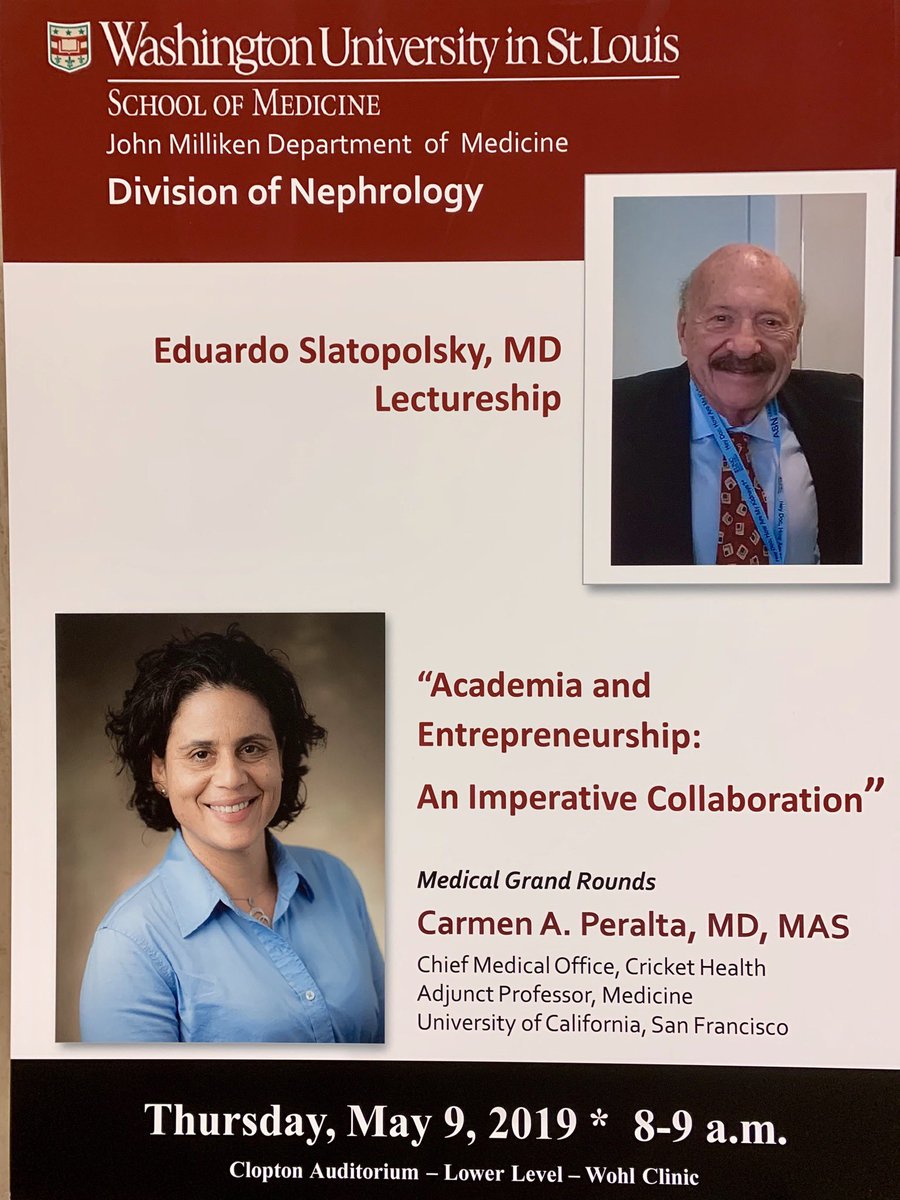 The 2019 Eduardo Slatopolsky Lectureship will feature Carmen A. Peralta, MD, MAS, who will present Academia and Entrepreneurship: An Imperative Collaboration at Medical Grand Rounds on Thursday, May 09, 2019, 8-9 am, Wohl Clinic Clopton Auditorium (lower level).
The 2019 Eduardo Slatopolsky Lectureship will feature Carmen A. Peralta, MD, MAS, who will present Academia and Entrepreneurship: An Imperative Collaboration at Medical Grand Rounds on Thursday, May 09, 2019, 8-9 am, Wohl Clinic Clopton Auditorium (lower level).
Dr. Peralta is Chief Medical Officer of Cricket Health and Adjunct Professor of Medicine at University of California, San Francisco. She is also co-founder and executive director of the Kidney Health Research Collaborative (KHRC), a global effort based at UCSF and the San Francisco Veterans Affairs Medical Center. The KHRC is composed of a multi-disciplinary team of leading scientists working to improve kidney health worldwide.

Carmen Peralta
Peralta is a leader in the epidemiology of kidney disease and hypertension. As a clinical investigator, Peralta’s research activities focus on three main areas: translational approaches to improving the care of persons with kidney disease and reduce racial/ethnic disparities; hypertension, arterial stiffness and kidney disease; and novel biomarkers for detection, classification and risk stratification of early kidney disease.
A pioneer in implementation sciences in nephrology, Peralta has led two trials to evaluate interventions embedded in electronic health records that are designed to improve the early detection and management of persons with early stages of kidney disease.
After earning her medical degree from Johns Hopkins School of Medicine, Peralta completed her residency in Internal Medicine at Harvard Medical School and Brigham and Women’s Hospital. She completed advanced training in epidemiology, biostatistics and a subspecialty in nephrology at UCSF. She was recognized with a Young Leader Award in 2012 by the Robert Wood Johnson Foundation.
You can watch a TED talk on Reducing Social and race Disparities in Kidney Disease given by Dr. Peralta here; view her full faculty profile here.
The lectureship honors Eduardo Slatopolsky, MD, Professor Emeritus, Division of Nephrology, who dedicated his career to the study of kidney disease and mineral metabolism. His contributions to the understanding of the pathophysiology of secondary hyperparathyroidism, hyperphosphatemia and vitamin D biology are recognized worldwide.